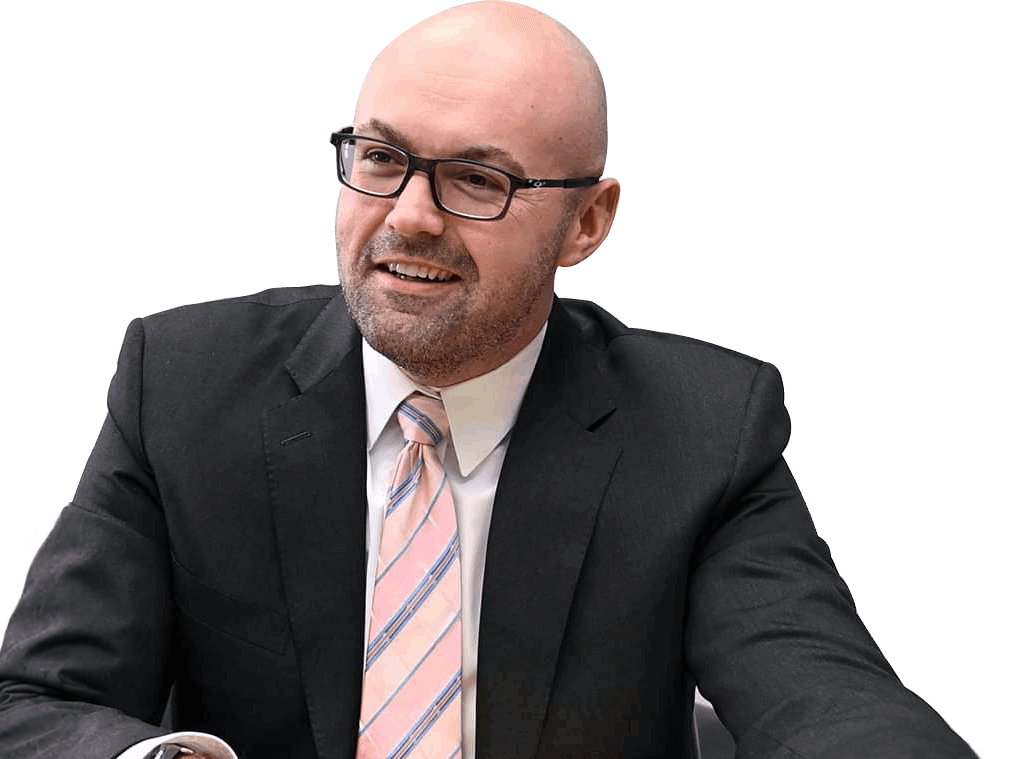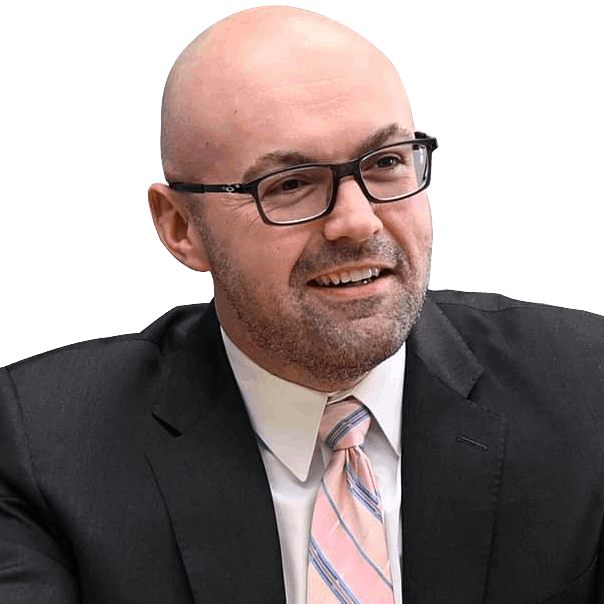Anesthesia is critical for pain-free and successful surgery, but when mistakes happen, the consequences can be devastating. In Orland Hills, IL, patients expect their surgical teams to administer anesthesia with precision. Unfortunately, some healthcare professionals fall short, and the result can be life-altering injury or death.
At Chicago Injury Lawyer, we serve victims of anesthesia malpractice across Orland Hills and Cook County. We work with top anesthesiology experts, forensic specialists, and surgical consultants to investigate medical negligence and recover damages on behalf of injured patients and their families.
Call us now at 312-261-5656 for a free, no-obligation consultation, available 24/7. With our no-fee-unless-we-win policy, you can focus on your recovery while we handle the rest.
What Causes Anesthesia Malpractice in Orland Hills, IL?
Medical providers are trained to prevent anesthesia complications, but mistakes can happen when safety protocols are ignored. In Orland Hills facilities, common causes of anesthesia-related malpractice include:
- Skipping critical pre-surgery evaluations (e.g., drug allergies, pre-existing conditions)
- Poor communication between anesthesia and surgical teams
- Administering the wrong drug or dosage
- Defective or improperly maintained monitoring equipment
- Fatigue or distraction during prolonged surgical procedures
Under 735 ILCS 5/13-212, injured patients in Illinois have legal rights to seek compensation when harmed by medical negligence, including anesthesia errors.
Types of Anesthesia Errors in Orland Hills Operating Rooms
At both hospital and outpatient centers in Orland Hills, the following anesthesia errors are among the most frequently reported:
- Incorrect anesthesia dosage or wrong medication used
- Inadequate oxygen monitoring (resulting in hypoxia)
- Failure to adjust anesthesia for patient-specific risks
- Premature withdrawal of anesthesia during surgery
- Intraoperative awareness—waking up while still under surgery
Whether general, regional, or local, anesthesia requires strict oversight. Any failure can result in long-term physical and emotional trauma.
Severe Injuries from Anesthesia Negligence in Orland Hills
Victims of anesthesia malpractice in Orland Hills may suffer:
- Brain damage due to lack of oxygen during surgery
- Cardiac complications caused by improper anesthetic management
- Stroke from dramatic blood pressure changes
- Psychological distress from anesthesia awareness
- Respiratory failure or seizures
- Wrongful death from equipment failure or miscalculation
If you or a loved one suffered any of these outcomes, contact our Orland Hills surgical injury attorneys for immediate assistance in evaluating your case.
Filing a Medical Malpractice Claim in Orland Hills, IL
In most Illinois cases, victims have two years from the date the injury was discovered to file a medical malpractice lawsuit. Residents of Orland Hills will likely file in the Cook County Circuit Court – Bridgeview Courthouse, located at 10220 S 76th Ave, Bridgeview, IL 60455.
We represent clients injured in hospitals, outpatient surgery centers, and dental clinics. If your claim also involves a failure to diagnose a pre-anesthesia condition, our Orland Hills misdiagnosis lawyers can pursue a comprehensive medical negligence case.
What to Do After an Anesthesia Mistake in Orland Hills
If you believe anesthesia malpractice occurred during your surgery, here’s what to do:
- Secure a copy of your anesthesia logs, surgical reports, and consent forms
- Report any drug or device-related issues through FDA MedWatch
- File a complaint with the Illinois Department of Public Health (IDPH)
- Obtain a second medical opinion to confirm the diagnosis or injury
- Notify the Orland Hills Police Department or local authorities if criminal negligence is suspected
After these steps, reach out to our anesthesia malpractice lawyers to start building a strong case for compensation.
For a free legal consultation, call 312-261-5656Why Choose Our Orland Hills Anesthesia Injury Lawyers
Victims throughout Orland Hills trust our firm for:
- Deep knowledge of Illinois malpractice law and anesthesia safety standards
- Successful case outcomes involving surgical and medication-related injuries
- Access to top medical experts and local legal resources
- Contingency-based legal fees—no payment unless we win your case
If your case involves amputation, paralysis, or another catastrophic injury, our Orland Hills serious injury lawyers can help you seek full long-term compensation.
EXCELLENTTrustindex verifies that the original source of the review is Google. I can't stress enough how grateful I am that we hired Paul Marriett to help us with our case. His communication was not only timely and thorough but also understandable. He did a phenomenal job guiding us through the process and preparing us for the courtroom, which put our minds at ease. Once our hearing came, he did his job flawlessly and won our case. Additionally, he was quite pleasant to speak with when our judge was behind schedule and while the court was in recess. I highly recommend him to anyone needing an attorney and will reach out again in the future should we ever need representation.Trustindex verifies that the original source of the review is Google. Very professional and helpful! I would recommend to all my friends and family to hire him. He was eager to know the circumstances of my case even before I hired him. I did contact other lawyers and offices, but none came close to the comfort I felt while talking to Mr. Marriertt, I really felt like he cared about the situation I found myself in. He deserves 6 stars for going above and beyondTrustindex verifies that the original source of the review is Google. Paul helped me out with a traffic citation. The communication was great as he walked me through my options and what to expect with my court date and plea deal. 10/10 service. Highly recommended. Thanks again, Paul.Trustindex verifies that the original source of the review is Google. Paul was very professional, sharp dressed and clearly a notch above most in the courtroom. He understood my plight and refused to be bullied. Knows the law to a T....I'm keeping him on speed dial. I think u will trust him too.Trustindex verifies that the original source of the review is Google. BEYOND satisfied with the services & representation! The communication & efforts have been above & BEYOND! Amazing price as well for a minor traffic hiccup. 11/10 recommend & prefer this firm for any future occurrences!!! Very transparent, & puts in the effort to help you!!!Trustindex verifies that the original source of the review is Google. If you are needing a lawyer in Rockford or the surrounding areas this is the guy you need to get ahold of! Do not waste your time or money going to someone else.... From the very start Mr. Marriett was on top of his job. I called several lawyers before him and he was the first to thoroughly explain everything I needed to hear without even asking him to. The definition of a great lawyer. Each time we went to court he always let me know ahead of time either in person or via phone what the expectations or options would be going in. I highly recommend Paul Marriett if you are in need of a lawyer!Trustindex verifies that the original source of the review is Google. Explained everything well. Kept us informed. I'm glad we found him.Trustindex verifies that the original source of the review is Google. I am very late on sharing my feedback only because I’m google illiterate. Attorney Merriett did a very smart excellent job for me and not real expensive considering how stupid I was to get in trouble . Thank you! For all your professionalism! Bruce P.Trustindex verifies that the original source of the review is Google. Great service and a reliable lawyer. I'm glad we got him instead of getting anyone else. :)
Get Directions to Our Law Office
Visit us in Chicago for a free consultation
- Address: 101 N Wacker Drive, Suite 100B, Chicago, IL 60606 Get Directions
- Driving Directions: If you’re traveling from The Loop, head north on Wacker Drive. Our office is between Lake and Randolph Streets, easily accessible from I-90 and I-94.
- Parking Options: Convenient parking is available at nearby garages, such as the Wacker & Monroe Garage, and there are metered spaces along N Wacker Drive.
- Landmarks Nearby: Our office is just steps from the Chicago Riverwalk and close to The Loop, making it a convenient location for visitors.
Contact Us
Chicago Injury Lawyers
101 N Wacker Drive, Suite 100B
Chicago, IL 60606
Phone: (312) 261-5656
Email: contact@chicagoinjurylawyer.com
Hours: 24/7
FAQ – Anesthesia Malpractice Lawsuits in Orland Hills, IL
What qualifies as anesthesia malpractice?
Any negligent act during the administration or monitoring of anesthesia that results in harm may constitute malpractice. This includes dosage mistakes, failure to monitor, and ignoring known risks.
Can I sue for waking up during surgery?
Yes. This condition, known as anesthesia awareness, is deeply traumatic. Our birth injury attorneys can also assist if the incident occurred during childbirth or a C-section.
Who can be held accountable for anesthesia-related injuries?
Liability may fall on anesthesiologists, nurse anesthetists (CRNAs), surgical teams, hospital administrators, or device manufacturers.
How long do I have to file a malpractice lawsuit?
You generally have two years from the date the injury is discovered, but there are exceptions, especially for minors or concealed malpractice.
What documents are needed to support my case?
Strong cases rely on medical records, anesthesia logs, witness accounts, expert evaluations, and any FDA or public safety reports relevant to the event.



